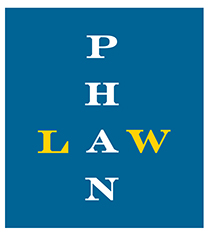A Positive Drug Screen Does Not a Violation for Intemperate Use Make
Complaints Handled by a Texas Nurse Attorney Involving the Texas Board of Nursing.
One of the complaints that I often see as a Texas nurse attorney involves Texas nurses dealing with chemical and substance abuse. A Texas nurse accused of this violation faces an allegation that the nurse engaged in intemperate use.
In the arena of professional license defense, every case must be examined carefully on the merits to achieve the best outcome, including whether the facts support an allegation that the nurse engaged in intemperate use.
The Board of Nursing’s Position Regarding Chemical Abuse.
The Texas Board of Nursing often lumps its licensees into a single category (i.e., chemical substance abuse). It often ignores the facts of the case. This causes inappropriate findings of facts and conclusions of law to result. This leads to more severe sanctions or discipline that may not be appropriate for that individual case.
Take for instance a situation where a nurse has a positive drug screen for marijuana (or other controlled substances).
If there are no legitimate grounds for attacking the results and the positive drug screen is valid, a case falling under this category is likely to elicit a claim by the Texas Board of Nursing that the nurse has violated its “intemperate drug or alcohol” provision. In short, the nurse suffers from chemical dependency.
Intemperate Use Under the Nursing Practice Act.
Section 301.452(b)(9) of the Nurse Practice Act subjects a nurse to sanction for “intemperate use of drugs or alcohol that the Board determines endangers or could endanger a patient.”
A Link or Nexus Between Substance Use and a Nurse’s Practice Must Exist.
The Board cannot presume a link between substance use and a nurse’s practice. There must be an evidentiary basis for such a determination.
The Board of Nursing believes that it is important that a nurse be fully aware on the floor. Patients are at risk because it impairs a nurse’s judgment such that a nurse may not be able to recognize subtle changes in a patient’s condition. A nurse may not act to stabilize a patient’s condition or document and report changes in a patient’s condition to the doctor and other health care providers.
On this point, the firm does not disagree. However, we disagree and disapprove of how the Board of Nursing often presupposes that there is an automatic causal link between substance use/positive test for marijuana (or other controlled substances) and a nurse’s practice that exposes risks to patients.
For the Board of Nursing to successfully prevail, it has to show specific evidence that there was a risk to patients by a nurse testing positive for marijuana (or chemical subsance). In other words, a causal link between substance abuse and the nurse’s practice.
If a nurse was not at work or was subject to call when he or she used or was under the influence of of the controlled substance then a case for intemperate use is severely weakened if not altogether extinguished. Likewise if the proximity of time between the use and one’s duty as a nurse is established to further show no impairment at work or any effects on a nurse’s practice or patients, then a case for intemperate use is severely weakened if not altogether extinguished.
Bottom Line.
Every case that involves potential discipline must be carefully examined on the merits of its facts. Employing the assistance of an experienced professional licensed defense attorney and a Texas nurse attorney provides the best outcome for a nurse alleged to have violated a provision of their licensing agency’s rules or regulations.
This is especially true when a licensing board attempts to lump its licensees into a single category as per its customary practice and is not befitting the facts of the case when it attempts to impose sanctions that are not in line with the facts.










